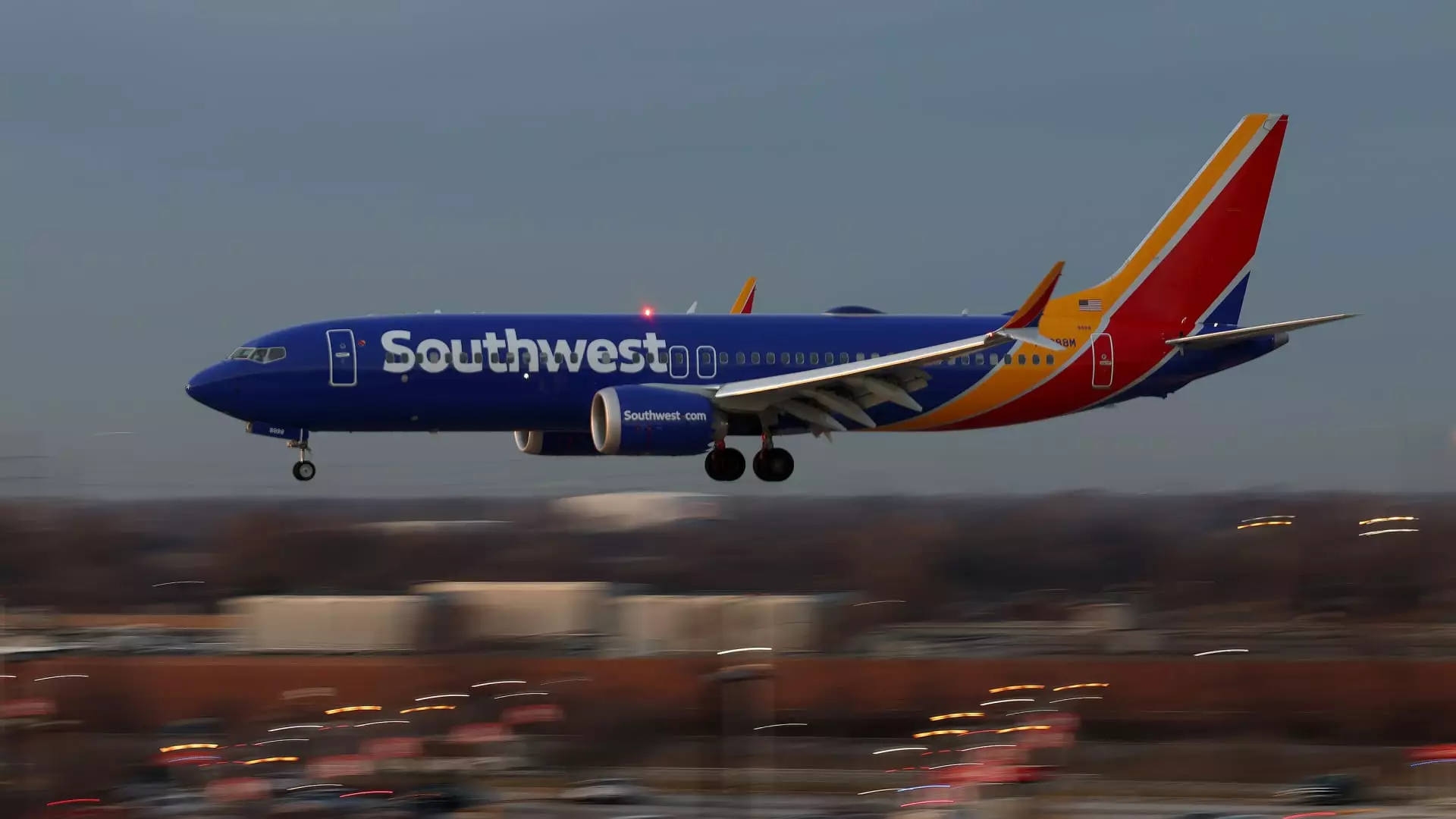In a bold move that sends ripples through the airline industry, Southwest Airlines has opted to dismantle its long-standing “two bags fly free” policy, introducing checked baggage fees for the first time. This decision, effective in May, signals a significant shift away from a customer-friendly model that has been a hallmark of the Southwest brand. Fitch Ratings has sounded the alarm, suggesting that these changes could ultimately jeopardize the company’s competitive edge. For an airline that built its reputation on service and value, this gamble reeks of desperation rather than innovation.
Revenue Boost or Customer Backlash?
While the intention behind introducing baggage fees and a no-frills basic economy fare may be to bolster profitability, the potential repercussions cannot be understated. Southwest, long celebrated for its robust balance sheet, appears ready to sacrifice its loyal customer base for a quick financial gain. Perhaps what’s most alarming is the expiration of flight credits, a policy that not only adds to the confusion but may also further alienate frequent flyers. The risk here is twofold: losing customer loyalty and damaging brand reputation. Many travelers are already speaking out on social media, furious over what they perceive to be a betrayal of the values Southwest has championed.
Assigned Seating: Innovation or Isolation?
The introduction of assigned seating could represent a break from tradition that Southwest travelers might accept, but it is also fraught with risks. The unique, free-for-all boarding process that characterized Southwest has not just been a quirk, but a defining aspect of its culture. Assigned seating brings with it the potential for discontent among customers who may find themselves at odds with the new structure. Rather than streamlining operations, this could lead to chaos and unsatisfactory experiences—exactly what carriers aim to avoid.
Activist Investors and Financial Decisions
The recent influence of activist hedge fund Elliott Investment Management, which gained board seats after taking a stake in the airline, has introduced an unsettling dynamic. While pushing for improvements is often good for corporate health, one has to wonder if Elliott’s focus on immediate profitability is overshadowing long-term strategies that have always defined Southwest. The airline’s management must tread carefully; the pressure to improve margins could lead to missteps that jeopardize years of hard-earned consumer trust.
The Uncertain Future of Market Share
As Fitch noted, the potential loss of market share remains ambiguous, yet one thing is undeniable: the shifting sands of customer expectations could leave Southwest vulnerable. With competitors already honing in on the gaps left by Southwest’s recent changes, the airline might soon find itself in an uphill battle for clientele. As operational decisions lean toward short-term financial boosts, the end-user experience could take a back seat—a miscalculation that might haunt the company for years.
Southwest Airlines has entered a treacherous territory that could redefine its legacy. The boldness of adjusting long-held policies raises serious questions about its commitment to service quality, making it crucial to critically examine how these changes align with consumer sentiments. The very essence of what has made Southwest a beloved airline could be at stake.

